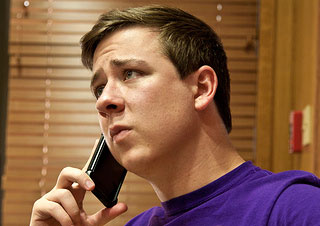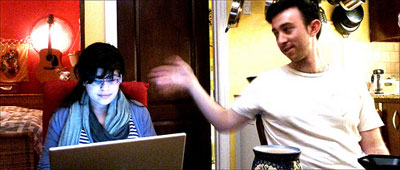
Source: Serious Business -- Phone Call, Daniel Foster, Flickr
Good spelling can save lives. This call to 911 illustrates that point. While most agree that learning to spell is important, it is sometimes difficult to do so because English can be unpredictable. Reinforcing that argument, dramatist George Bernard Shaw pointed out that the word “fish” might be spelled “ghoti” if it were based on the following sounds:
- gh as in “laugh” (f sound)
- o as in “women” (short i sound)
- ti as in “nation” (sh sound)
Most English words, however, are predictable when it comes to how they are spelled. In fact, Dr. Louisa Moats, noted reading researcher, has pointed out that 84% of the words in English have mostly predictable spellings.

Source: Alamo Ambulance & TransCare, Matthew G., Flickr
The catch is you must learn those predictable spelling patterns. To help you learn and correct spelling errors, you can use the following three-step editing strategy as you edit:
- Use a spell-checker whenever you type. While this resource is far from perfect, it can alert you to many spelling errors.
- Create a list that contains both challenging words and easily confused homophones
such as weather/whether, two/too, and
their/they’re/there. Put this list in some easily accessible place on your desktop so you can add to it and check it as you write and edit. Next, use mnemonics to help you remember the words you consistently misspell. Here's an example:
Exercise is spelled with an “s” and not a “z” because you sweat when you exercise.”
- Use a dictionary to find words not included in your spell-checking software and to confirm the spelling of words that you suspect are incorrect.

Source: pay attention!, Sarah, Flickr
Now, let’s take a step back to see if you know when it’s critical to give laser-like attention to spelling and when you can relax a bit. Spelling is like apparel: you know how to dress appropriately for different events. Some events, like a wedding, require formal attire, but other events, like a backyard picnic, need no special attire and are much more casual. Spelling rules may be relaxed sometimes, as well.
From the set of writing tasks below, determine when casual spelling might be tolerated and when formal or correct spelling is a must. Click on your choice.

Correct spelling is a good idea for all of these situations, but it is a must for formal instances such as academic work. Correct spelling is especially important when many people will see your work or when the expertise of the reader demands it.